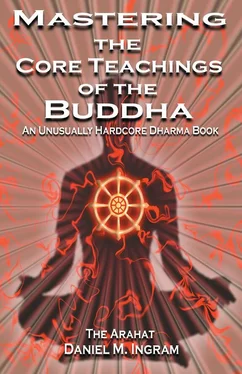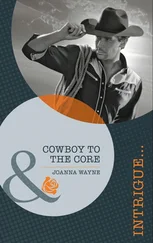Daniel Ingram - Mastering the Core Teachings of Buddha - An Unusually Hardcore Dharma Book
Здесь есть возможность читать онлайн «Daniel Ingram - Mastering the Core Teachings of Buddha - An Unusually Hardcore Dharma Book» весь текст электронной книги совершенно бесплатно (целиком полную версию без сокращений). В некоторых случаях можно слушать аудио, скачать через торрент в формате fb2 и присутствует краткое содержание. Год выпуска: 2009, ISBN: 2009, Издательство: Aeon Books, Жанр: Старинная литература, на русском языке. Описание произведения, (предисловие) а так же отзывы посетителей доступны на портале библиотеки ЛибКат.
- Название:Mastering the Core Teachings of Buddha - An Unusually Hardcore Dharma Book
- Автор:
- Издательство:Aeon Books
- Жанр:
- Год:2009
- ISBN:9781904658405
- Рейтинг книги:5 / 5. Голосов: 1
-
Избранное:Добавить в избранное
- Отзывы:
-
Ваша оценка:
- 100
- 1
- 2
- 3
- 4
- 5
Mastering the Core Teachings of Buddha - An Unusually Hardcore Dharma Book: краткое содержание, описание и аннотация
Предлагаем к чтению аннотацию, описание, краткое содержание или предисловие (зависит от того, что написал сам автор книги «Mastering the Core Teachings of Buddha - An Unusually Hardcore Dharma Book»). Если вы не нашли необходимую информацию о книге — напишите в комментариях, мы постараемся отыскать её.
Mastering the Core Teachings of Buddha - An Unusually Hardcore Dharma Book — читать онлайн бесплатно полную книгу (весь текст) целиком
Ниже представлен текст книги, разбитый по страницам. Система сохранения места последней прочитанной страницы, позволяет с удобством читать онлайн бесплатно книгу «Mastering the Core Teachings of Buddha - An Unusually Hardcore Dharma Book», без необходимости каждый раз заново искать на чём Вы остановились. Поставьте закладку, и сможете в любой момент перейти на страницу, на которой закончили чтение.
Интервал:
Закладка:
Beyond this, there are also good reasons to question the very concepts of “teacher” and “student” and the disturbing and often unquestioned rigidity with which they are sometimes applied. One person may have an understanding that they share with someone else and then turn around and ask them a question about something that the person who was a “student” just moments before is skilled in. I have come to the conclusion that some of the best teaching happens in conversations between friends and not in the context of very short, formal interviews with lineaged teachers who have just flown in for the week.
The climate of secrecy surrounding conversations about mastery of these things, restrictive lineage issues and the rarity of engaging in long, deep conversations with harried and over committed Jet Set Dharma Teachers combine to create what I term the “Dharma Underground.”
This refers to loose associations of those who are “in the know” but not officially sanctioned who cautiously seek one another out, support one another, and exchange ideas about how to go deeper in ways that have everything to do with friendship and empowerment and little to do with formal lineages or rigid concepts of “teacher” and “student.”
Often such conversations occur in “silent” retreat centers or in other ways that involve breaking some of the rules that may be helpful from one perspective but also defend the semi-arbitrary privileges of the lineaged elite while disempowering and marginalizing others with valuable and accurate knowledge and experience to share. Interestingly, when reading the old texts I often get the feeling that a significantly more egalitarian, balanced, and friendly style was much more the model that occurred in the early Buddhist community, and I often long for its return.
It is interesting that, unlike Tantric traditions and many others, the Theravada does not have any formal vows of secrecy regarding the details of mastery of its practices. Perhaps they would just be needless overkill.
345
Mastering the Core Teachings of the Buddha
35.SO WHO THE HECK IS DANIEL M. INGRAM?
I suppose that if I am going to rant about how most dharma teachers do not do a good job of clearly stating what they know, what they teach, etc. then I should try to avoid being a complete hypocrite and thus answer some of those questions here.
Here’s my Western Teacher Bio the way I would have it on a
retreat center brochure: “Daniel is a Double Aquarian from North Carolina who prefers to be called ‘Dharma Dan,’ ‘dude’ or simply
‘Honored Archmystic, Sir.’ His favorite movie is ‘Raising Arizona.’” Just kidding!
Let’s try that again: “Daniel is an extroverted Gen X intellectual. He is known for his pronounced enthusiasm, lip-flapping, grandiosity, eccentricity, and calling people on their stuff and shadow sides regardless of whether or not this is helpful or even accurate. He is an arahat and has a solid mastery of the basic concentration states from the first jhana to Nirodha Samapatti, including the Pure Land Jhanas. He also has a solid knowledge of Buddhist theory and the texts, and because of these three areas of expertise considers himself a qualified teacher. He was also authorized and encouraged to teach by a lineaged abbot of the Mahasi Sayadaw tradition. When it comes to insight practices, he has standards so high, exacting, and uncompromising that only those who are dedicated practitioners are likely to find them helpful. On the other hand, he is a firm believer that if people simply practice the basic techniques recommended by the Buddha they can be very successful and awakened meditators. He is one of the rare teachers who will talk about insight directly and answer nearly any question about dharma practice without using code, covering things up or watering things down. Daniel is a diehard Mahasi Sayadaw fan, though he is very happy whenever he sees people trying to master any of the world’s great mystical traditions and thus considers himself a pan-mystical evangelist.
He is also a chronic map-monger and technique freak because he has had them work very well for him. He does not claim to have any special knowledge of how to live skillfully in the conventional world, but has found that a positive attitude, non-pretentious kindness, and a sense of humor will take you a long way. If you imagine that you want to bust out
So Who The Heck Is Daniel M. Ingram?
some hardcore practice but are in fact just looking for a daddy, shrink, social worker, or someone to help you prop up your self-esteem, Daniel is unlikely at this stage in his development to be the best person to help you meet your needs. He considers himself to be one badass Dharma Cowboy and prefers similar company or at least those who aspire to be so.”
I dare, no, I double dare any other teacher to be that honest when writing their next bio, not that they are likely to be given enough space to disclose anything resembling this much honest and practical information. A few more things: I crossed the Arising and Passing Away when I was about 15 and did it again about 4 more times by my recollection over the next 10 years without formal practice, technique or guidance. I attained to stream entry at the end of the first week of my fourth retreat on January 13th, 1996 in Bodh Gaya, India, in the Thai Monastery. I also crossed the Arising and Passing Away of second path on that retreat. I attained second path in daily life while working at the National AIDS Hotline with the CDC in July, 1996. I was in the break room just hanging out. I attained to Third Path towards the end of 1996, also in daily life, after a retreat a few weeks before where I crossed the Arising and Passing Away of that cycle. I attained to Nirodha Samapatti (see the appendix) one month later, but it would take me a more few years to really nail down hard samatha jhanas and the formless realms so that I could access them off retreat.
I was an anagami for almost 7 years, going through cycle after cycle of progressive appreciation of the emptiness of ordinary phenomena, with my total count of what felt like full new paths being about 27. I wrote most of this book during that time. I also earned a two-year Masters of Science in Public Health in Infectious Disease Epidemiology at UNC Chapel Hill and then went on to complete medical school there.
Then, on April 17th, 2003, on a 21-day retreat at the Malaysian Buddhist Meditation Center between medical school and my residency, I attained to arahatship. It happened while I was doing walking meditation on that glorious Spring morning. I was sick of the cycles of insight and profoundly inspired by the steady and gentle invitation of the teacher, Sayadaw U Pandita, Junior, to simply see through the whole 347
So Who The Heck Is Daniel M. Ingram?
thing as he had done. His calm smile seemed say, “You can do it. Come on! Any day now.” Always sit with arahats if you possibly can. That’s my advice, anyway.
I decided that I would allow no sensation anywhere in the entire wide sense field to go by without it being clearly known as it was during every single second of the day. It was a high standard, but strangely enough can actually be very closely approximated. It was sufficient to do the trick after about a week of doing that some 20+ hours per day. I remember attaining to a Fruition, and a few seconds later I noticed something about the entrance to it and the re-forming of the sense of a perceiver on the back side of it, and then suddenly the knot of perception flipped open, everything was the same and yet the perspective on it was completely different, and my vipassana problem, once I had stabilized in that understanding, was solved.
I had barely taught in the previous 6 years as my own practice has consumed most of the scant free time I had, but a few days after seeing it I told my teacher I was thinking of teaching again. He shot me an uncharacteristically sharp glance and said in a forceful and commanding voice, “Good!”
Читать дальшеИнтервал:
Закладка:
Похожие книги на «Mastering the Core Teachings of Buddha - An Unusually Hardcore Dharma Book»
Представляем Вашему вниманию похожие книги на «Mastering the Core Teachings of Buddha - An Unusually Hardcore Dharma Book» списком для выбора. Мы отобрали схожую по названию и смыслу литературу в надежде предоставить читателям больше вариантов отыскать новые, интересные, ещё непрочитанные произведения.
Обсуждение, отзывы о книге «Mastering the Core Teachings of Buddha - An Unusually Hardcore Dharma Book» и просто собственные мнения читателей. Оставьте ваши комментарии, напишите, что Вы думаете о произведении, его смысле или главных героях. Укажите что конкретно понравилось, а что нет, и почему Вы так считаете.












